…asks Buhari to sack them
… Our cup of endurance has run over, says Gbajabiamila
Uncomfortable with the current parlous security situation in the country, Nigeria’s Senate and the House of Representatives, at separate sittings, unanimously urged on President Muhammadu Buhari to sack the nation’s service chiefs.
In the alternative, the National Assembly asked them to immediately resign for being “unable to address the security challenges plaguing the country since 2015.’’
To put out the rapid-fire of killings, armed banditry and kidnappings, the Senators called on President Buhari to, as a matter of urgency, sack the Service Chiefs, who were appointed July 2015, contending that that they have done their part and at the moment, are out of ideas and have overstayed their welcome.
The House, in a resolution, said the Service Chiefs have not been able to address the security challenges plaguing the country since 2015 when they were appointed by the President.

On its part, the Senate called on President Buhari to, as a matter of urgency, sack the Service Chiefs, who were appointed July 2015, contending that that they have done their part and at the moment, are out of ideas and have overstayed their welcome.
The lower chamber regretted that the security top brass had adopted ineffective strategies that had failed to yield positive results.
A motion by the Chief Whip of the House, Mohammed Monguno (APC, Borno) and 14 others, asked President Buhari to sack the service chiefs if they failed to resign their positions.
Monguno, who expressed concern over the growing blood-letting from attacks by Boko Haram and the Islamic State West African Province, ISWAP, insurgents in the North-East, recalled that activities of the insurgents, were drastically reduced earlier in Borno and Yobe States, before the latest resurgence in attacks on communities.
“Recently, the insurgents have forced the Nigerian Military to close traffic on the Damaturu-Maiduguri Road for some days. The Damaturu-Maiduguri Road is the only access road from Maiduguri to other parts of Nigeria.”
Similarly, Speaker of the House of Representatives, Mr Femi Gbajabiamila, described Amotekun, a South-West regional security initiative and similar regional outfits, as solutions to the raging problem of insecurity in the country.
He said: “Recently, the Governors of Lagos, Ogun, Osun, Ekiti, Oyo and Ondo states, took action to implement a regional security network to support the efforts of the Nigeria Police Force in preventing crime and protecting the lives and property of those our citizens who live, work and travel through these states.
“The establishment of Amotekun, as the network is called, has met with commentary from across the country, both for and against.
“Too often, it has seemed to me that lost in these interactions is the hard, brutal and unavoidable fact that Amotekun and other such state or zonal interventions that already quietly exist in other parts of the country, are a desperate response to the vile manifestations of insecurity that trouble the lives of citizens, depriving them of the peace and security that gives life meaning.
“I do not know whether Amotekun or whatever iterations of it may follow represents the ultimate or perfect solution to the problem of insecurity in our country.
“The localised manifestations of insecurity across the different parts of our country, call for unique and localised approaches that take those peculiarities into account.”
He also lamented the killing of Pastor Lawan Andimi and a student of Plateau origin, by Boko Haram terrorists.
Gbajabiamila stressed: “Our cup of endurance has run over and we are no longer willing to labour under these dark clouds of random violence inflicted upon our people by faceless cowards whose ends we do not understand, and whose means we do not know.
“Overcoming our overwhelming national security challenges now requires of us all that we are willing to accept new approaches and consider novel ideas.
“Neither the security institutions nor political leaders can afford to hold on too tightly to a status quo whose frustrating limitations are painfully evident, whilst reflexively rejecting innovations that may improve our fortunes if properly implemented.”
The Chairman of the House Committee on Defence, Mr Jimi Benson (APC Lagos), also expressed concern over recent developments in the country.
He said: “The National Security Adviser is from the North East and cannot get to his village. The Chief of Army Staff is also from the North East and cannot get to his village. The Chief of Air staff too. That speaks volumes of their “ability’’.
“But the solution lies in the hands of the President. I don’t know why he has kept them since 2015 when they were first appointed. He should decide whether to continue to keep them or not. I believe the resolution here will prick his conscience.”
In the Senate after six-hour long debate on security, the lawmakers summoned the Inspector-General of Police, Mr Mohammed Adamu to appear before it next Wednesday (Feb. 5) to brief them on the security challenges, architecture, methods employed so far and the way forward.
The Senate also set up a 17-member ad-hoc Committee with the Senate Leader, Senator Abdullahi Yahaya (APC, Kebbi North), as chairman, saddled with the responsibility of engaging the security agencies and reporting back to the Senate in two weeks.
The committee will also engage the National Security Adviser, Major-General Mohammed Monguno on the implementation modalities of the December 2019 national security strategies, and the National Security Institute to discuss their operational structures, funding, equipment and staff disposition with a view to reviewing the national security architecture.
The service chiefs whose jobs are on the line are the Chief of Defence Staff, General Abayomi Olonisakin; National Security Adviser, NSA, Major-General Monguno; Chief of Army Staff, Lt. General Tukur Buratai; Chief of Air Staff, Air Marshal Sadique Abubakar and Chief of Naval Staff, Vice Marshal Ibok- Ete Ibas.









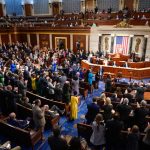
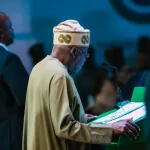

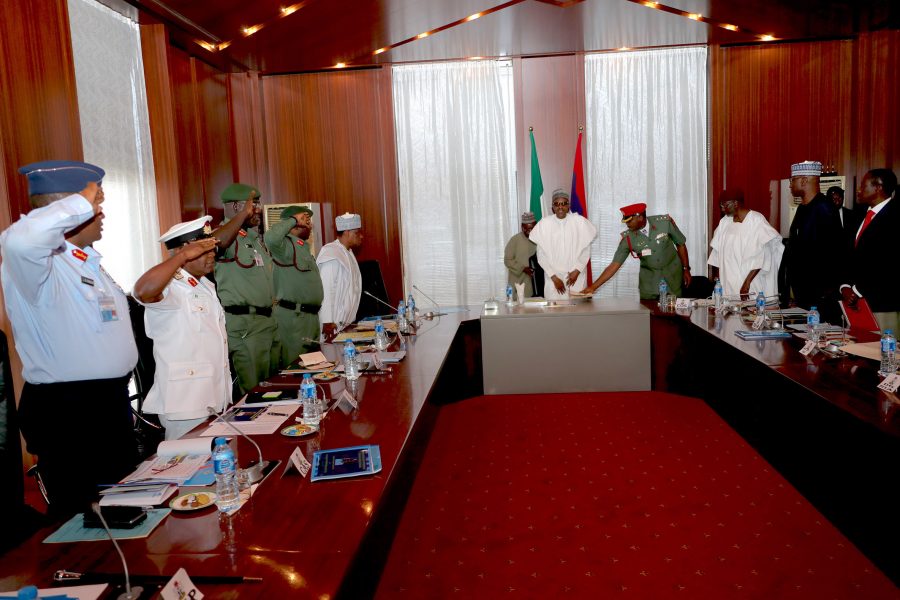

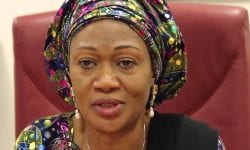
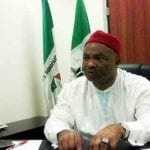








Leave a comment